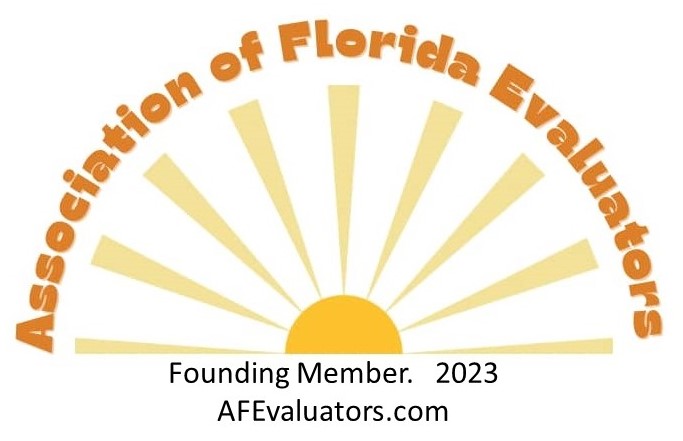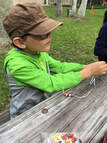|
Talking About
Florida Homeschooling... Evaluations and More |
A good evaluator works for the parents, assisting them in meeting legal requirements and in supporting them when districts overstep their bounds." |
Homeschooling High School
High school students certainly don't have to feel stuck with using FLVS classes (which are public school online classes and are what many homeschool to get away from)--though FLVS Flex makes these classes available to Florida homeschoolers who want to use FLVS classes. Nor are high school students stuck with having to use other online programs or prepackaged curriculum--though they can choose those options if they like. Many teens get fed up with those boxed or online programs that tend to be as boring as dish water for most students. And who can blame them when the classes are factory-style learning that, by its nature, treats all students alike and treats them as though all need to learn exactly the same sorts of things? When we look at the wide variety of options available to adults for life, we can see a lot of variety in our lives and what we need. True we need certain skills such as being able to read, write, calculate, understand the world around us, etc. but there are many ways to learn those. You can totally use anything you like to teach even high school students. As long as your child is learning, it will work. The part that's really different about high school is the need to keep additional records. These records aren't required by home education law, but may be needed to get into college or a career. Yet keeping these records does not have to affect the curriculum. A teen can improve writing skills with a packaged curriculum with prompts that are of no interest to him and lessons that are tedious, but he can also improve writing skills with practical hands-on activities such as writing a blog giving opinions on the latest video games or writing a novel with NaNoWriMo or such--and those lessons in writing can transfer into other areas of life even if the teen's life-goals change. We all learn more when interested in the topic and the way the material is presented--and this is something that no prepackaged program is likely to reproduce unless it happens to be specifically suited to your child. Many worry about their children getting into college if they homeschool. That shouldn't be a worry. So many Florida homeschooled teens successfully take free college dual enrollment courses--earning college credit without going into debt. In my experience (and verified with so many other parents I've spoken to), dual enrollment college courses tend to have much less busywork, fewer meaningless tasks, and, just less work overall, than a lot of FLVS and other high school classes. So the students can take college classes, have less work, and come out with college credit already--win, win, win. This college credit will help them get into a better college if that's their path. Or can lead to a college degree at a college near them--many homeschooled students graduate with a two-year AA degree before graduating high school as a homeschooled student. In addition, going a less traditional route with high school can help a student get into college. There are two keys to college that most parents don't realize. (I was an interviewer for a college admissions committee for a top university for 7.5 years so I have a bit of inside scoop on this.) Besides the basics of studying math, English, science, history, and foreign language, and getting decent test scores on entrance exams, there are two things that are so much more important for getting into college than most parents realize. 1. Evidence of success 2. Diversity Both of these are areas that homeschoolers can shine in, especially if you don't totally lock yourself into some standard educational program that looks like what everyone else is doing. "Evidence of success" means that the college wants to admit as students people who have shown that they are likely to be a success. They want to have successful graduates to point at as proof of their great program, but one way to get these successful students is to seek students showing signs of success already. This is much easier for homeschoolers who have time to pursue hobbies in great depth or can research in great depth topics they are interested in. A college will be much more impressed by a student who was interested in a topic and spent months researching it and did a massive project on it out of passion than one who just followed a set program of study and did what was assigned--letting your child loose to explore passions is something homeschoolers can do in a way that others can't. Or teens might read several works on an aspect of science or history, perhaps seeking out experts to learn more from or talk to, or coming up with a project to share what they've learned because they were intrigued by the subject and wanted to learn more--these sorts of projects can show off an intellectual curiosity that colleges--especially the better colleges and universities--want to see because it proves they'll likely be quite successful academically. But showing evidence of success doesn't have to be academic. Let me give an example. My daughter approached me about 4 years ago and asked if she could go to a summer camp that started in Colorado, and traveled--hiking, kayaking, horse back riding, biking, and more--all the way to California. I told her that it was completely out of our budget. She asked if she could go if she raised the money. She contacted the camp and asked for a discount, sought out organizations that provided scholarships for camp, asked in the local community for support, and she raised the thousands of dollars and went. The next summer, she asked if she could go to a summer camp that would leave from New York City, go to Europe and end in Israel before flying back via New York. I told her that we couldn't afford the previous camp and this was much more, but she raised the money again and went. Put something like that in a college essay or talk about it in an interview, and colleges will see that this student knows how to persevere and get out there and push to get what she wants and that will help immensely in getting into college because the college wants to be able to claim her as their success when she does something big. The word "diversity" makes most people think of race--and it could be that--but it can be much bigger than that. Colleges want a diverse population with diverse experiences and passions because that will enrich the college experience making it much more likely that differing opinions will be offered inside and outside of class to enrich the education the college provides and making it more likely that students will have a wider option of clubs and activities and experiences as those who have different skills and passions are more likely to start new activities and experiences for others or, at least, to help keep current ones operational. Courses that colleges want--such as English or history--can be done in so many ways. Those requirements shouldn't force you to use packaged curriculum (though you could if you want). You can have your child earn credits in traditional subject areas without having a typical curriculum. For example, if your child wants to study the history of eastern Africa, or the history of plagues throughout the world, or trace in detail the origins of conflict in a particular part of the world, instead of taking a standard survey of world history (or as an elective in addition to it), that can not only be okay, but it can make your student stand out--which is usually a good thing. Or if your child wants to start a business and sell his artwork, you could use that as the focus of other lessons. You might have English focus on putting together a business plan, writing formal letters to potential suppliers or to shops where he wants to sell his product, reading about how to succeed in business, how to relate to people, and how to improve his artwork, and giving oral presentations to businesses and customers--real world English skills could be the "credit" that's listed on the transcript you put together for him. Math could involve learning business math, keeping records of purchases and sales, working through tax documents, and keeping detailed inventory lists, and such. Making the art could be an art credit especially if at least 120 hours were spent on it. Keeping spreadsheets and using word processing and database programs could be listed as a computer applications course. These sorts of atypical classes can translate into meeting course requirements that colleges typically want to see, but can also impress the admissions committee so much more when they are deciding which applications don't make the cut. A lot of people see high school as a time to copy schools in order to get into college. But the opposite can be true. Homeschooling high school can be a time to allow your teen to spread his or her wings and explore interests without negatively impacting college options. For more information on homeschooling high school and records that you'll likely want to keep, see this page on our website: https://www.flhomeschoolevaluations.com/high-school.html Cheryl--homeschool mom and evaluator since 2003
1 Comment
Sheila Sokol
2/23/2022 06:00:17 pm
I am so grateful to have found you and your explanations of homeschooling! I wish I’d known more for my now adult children but I’m so happy to know my granddaughter will have this experience and succeed. I read everything you post and I’m feeling more confident. For our teen who became orphan at 14 and dealing with all the heartache, this will eliminate 2 issues for her. I will be in touch for your guidance and appreciate all you’ve given.
Reply
Your comment will be posted after it is approved.
Leave a Reply. |
Archives
April 2024
Categories
All
|

 RSS Feed
RSS Feed







